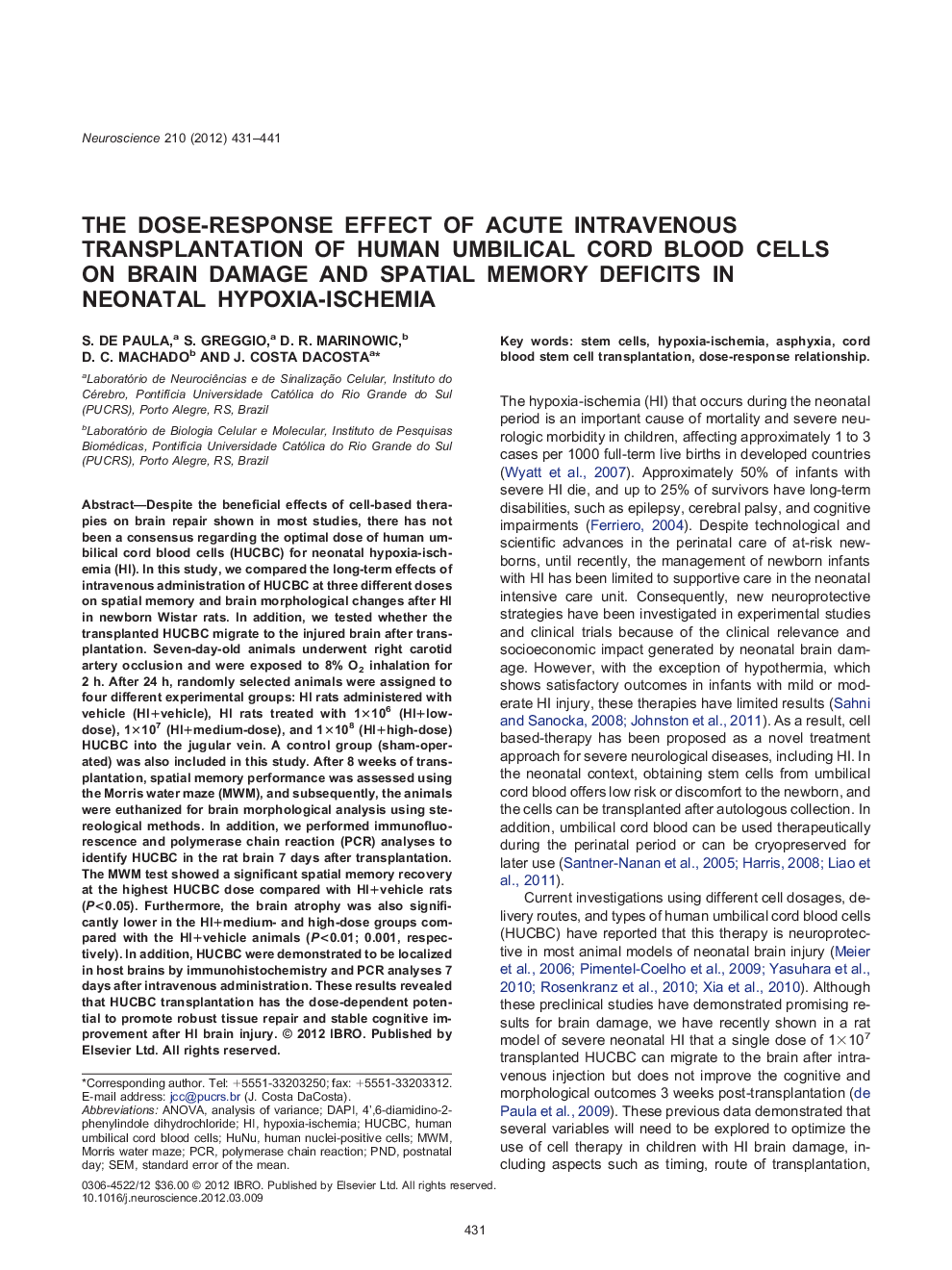| Article ID | Journal | Published Year | Pages | File Type |
|---|---|---|---|---|
| 4338385 | Neuroscience | 2012 | 11 Pages |
Despite the beneficial effects of cell-based therapies on brain repair shown in most studies, there has not been a consensus regarding the optimal dose of human umbilical cord blood cells (HUCBC) for neonatal hypoxia-ischemia (HI). In this study, we compared the long-term effects of intravenous administration of HUCBC at three different doses on spatial memory and brain morphological changes after HI in newborn Wistar rats. In addition, we tested whether the transplanted HUCBC migrate to the injured brain after transplantation. Seven-day-old animals underwent right carotid artery occlusion and were exposed to 8% O2 inhalation for 2 h. After 24 h, randomly selected animals were assigned to four different experimental groups: HI rats administered with vehicle (HI+vehicle), HI rats treated with 1×106 (HI+low-dose), 1×107 (HI+medium-dose), and 1×108 (HI+high-dose) HUCBC into the jugular vein. A control group (sham-operated) was also included in this study. After 8 weeks of transplantation, spatial memory performance was assessed using the Morris water maze (MWM), and subsequently, the animals were euthanized for brain morphological analysis using stereological methods. In addition, we performed immunofluorescence and polymerase chain reaction (PCR) analyses to identify HUCBC in the rat brain 7 days after transplantation. The MWM test showed a significant spatial memory recovery at the highest HUCBC dose compared with HI+vehicle rats (P<0.05). Furthermore, the brain atrophy was also significantly lower in the HI+medium- and high-dose groups compared with the HI+vehicle animals (P<0.01; 0.001, respectively). In addition, HUCBC were demonstrated to be localized in host brains by immunohistochemistry and PCR analyses 7 days after intravenous administration. These results revealed that HUCBC transplantation has the dose-dependent potential to promote robust tissue repair and stable cognitive improvement after HI brain injury.
▶A high dose of HUCBC attenuates spatial memory impairments in hypoxic-ischemic rats. ▶HUCBC dose-dependently hinder brain lesions in hypoxic-ischemic rats. ▶HUCBC are detected in host rat brains 7 days after cell transplantation. ▶HUCBC are a promising treatment for neonatal hypoxia-ischemia. ▶Dosage is an important factor for the clinical use of HUCBC for neonatal hypoxia-ischemia.
